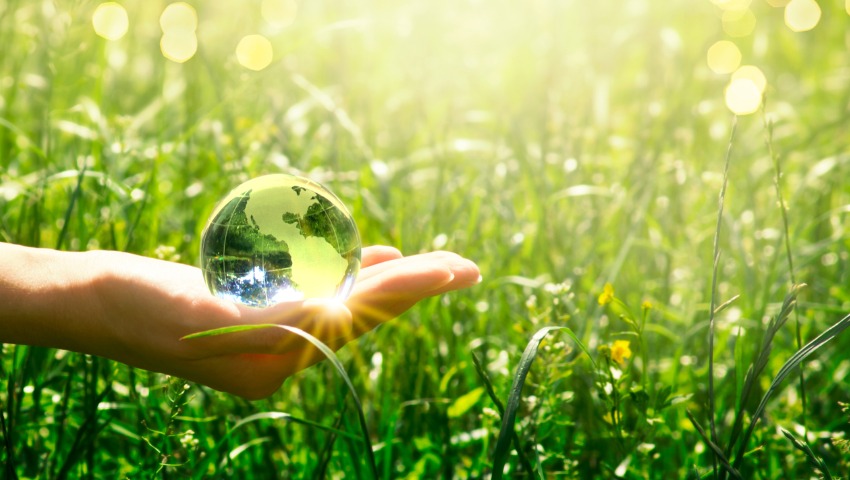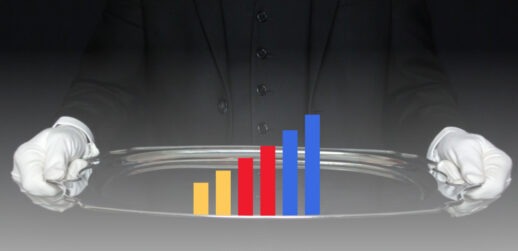To hold the pandemic at bay, disposable items seem to be the easy solution to keep things clean and safe. But do not throw out the baby with the bath water! The MICE industry has come a long way in recent years to help slow man-made climate change—which, don’t forget, will hit us with its own health challenges down the road.
For the good of everyone’s health now and in the future, it is still absolutely possible, safe and hygienic to use sustainable practices. Here are 10 good ways to do just that.
Remember: If we are not part of the solution, we are part of the pollution!
Meeting/Conference Setups
- Signage: Instead of printouts, make signs reusable (for instance, by avoiding the year of the conference); even better, use electronic sign boards.
- Pens, pencils and paper: Use notepads made of recycled paper. If offering pens for one-time use, consider those made out of paper, which decompose centuries faster than plastic. For pencils to jot down great ideas, try providing “sprout pencils” that can be planted afterward: They contain seeds, from forget-me-nots to thyme. Before you know it, you will see vibrant flowers or fragrant herbs.
More: Live Events Beyond COVID-19: Sustainability Matters
- In-room technology: By using smart technology in meeting spaces, from temperature controls to lighting, you can make a positive impact that’s almost effortless, especially when you don’t forget to turn things off when not in use.
- Event apps: Embrace our tech age by foregoing disposables such as handouts and binders and use apps instead of printed agendas. Other examples: e-signage over printed signs (especially those on foamboards) digital invitations and registrations (so much easier to track, as well).
F&B
- Food containers: Use eco-friendly containers of 100 percent compostable, natural fibers from wheat or corn. These boxes are gluten-free, and microwave and oven safe. Unlike plastic and Styrofoam containers, no harmful chemicals will leach into food. For some foods, paper containers might be the best solution: BioPlus Terra II boxes are made in the United States from recycled paperboard and are certified by BNQ to be 100 percent compostable in a commercial facility. Grease and moisture resistant due to a non-GMO lining, they contain no plastic, PFAS or fluorine-based chemicals.
- Disposable or real cutlery: A great alternative to plastic is cutlery made from bamboo or wood. Even more sustainable is using real silverware that will be washed and sanitized later in a dishwasher.
- Straws: Great progress has made in eliminating traditional plastic straws from hotels, resorts and restaurants. They are nearly impossible to recycle because they can’t be easily processed in recycle sorter machines; typically, they end up in landfill or worse (think: inside marine life). Compostable and biodegradable straws fully compost in commercial compost facilities, and paper straws are marine degradable. Great alternatives include paper straws made from FSC-certified paper in a variety of colors and sizes; PLA Straws, made with corn-based bioplastic PLA, which is compostable, nontoxic and as strong as traditional plastic; and the Naked Straw, made from avocado pits and offering the added benefit of being sourced from agro-waste. To keep it hygienic, look for packaging made of paper—rice paper, for example, rather than plastic. The devil is in the details!
- Tea bags: Forget about plastic spoons and stirrers, Sprout®SPOON is a fully biodegradable spoon and tea bag in one. Simply unfold, brew in hot water and enjoy a cup of delicious fair-trade tea. And what tastes great feels even better. This clever spoon can be broken down by nature’s own composting processes.
- Menu cards: Print your menus on seeded paper and ask your attendees to take them home. This is a win-win in many ways. No trash is left behind. The attendee can plant the seeded paper in a yard or flowerpot, where the paper will turn to compost and the embedded seeds will turn into flowers. A few weeks later, your event will still be remembered—in a great way!
- Water: Plastic water bottles seem the easy solution, but they are the worst for our planet! Plenty of alternatives are more sustainable. Remember that with each sip you take from a plastic bottle, you are ingesting a tiny part of the plastic—sometimes you can even taste it. Use water-filling stations instead that meet today’s hygienic standards: Touch-free is best. Provide reusable containers, whether a simple glass or a reusable bottle. Over the course of a day, what you save from using water dispensers and offering branded bottles will offset the a hotel charge for the plastic bottles.
BONUS: Reusable masks: Support a local charity producing hand-sewn masks. These will surely be good conversation starters and won’t end up in the trash. And they will be a welcome reminder of your event.
In fact, almost all the types of products mentioned here can also be customized with your logo or brand message, an ideal way for your company or organization to spread your sustainability story and get people talking. Many of these products are made in the U.S. and make for less shipping-carbon-offset, and they support local economies. Vendors mentioned have no relationship to me or Smart Meetings, so they might just be a start for your own explorations.
Steffi Kordy, founder of Cocoon Incentives, serves as sustainability chair on the board for SITE (Society of Incentive Travel Excellence) Florida & Caribbean.




